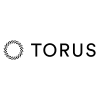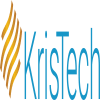Dive Brief:
- SolarCity, the biggest U.S. financier-installer of rooftop solar, and SunPower, one of the biggest U.S. solar module manufacturers, are both moving aggressively toward vertical integration on the model of the oil majors.
- With its purchase last month of Silevo for $200 million, SolarCity became the first U.S. solar financier-installer to become a module manufacturer and it plans to expand Silevo’s production capacity to a gigawatt per year, which would make it the biggest U.S. solar module maker.
- With its addition last month of energy storage systems in partnership with KB Home, SunPower completed a full spectrum of offerings that also covers its PV manufacturing capacity, its dealer-installer network, and its inverter, racking and monitoring system, and utility-scale solar engineering, procurement and construction services offerings.
Dive Insight:
Vertical integration that offers control over everything from the raw silicon supply to the panel installation is a way to manage solar industry costs and uncertainties and provide vital scale that, especially combined with energy storage, could put SolarCity and SunPower into competition with traditional power generators and utilities.
In other examples of vertical integration in the industry, SunRun, another solar financier, became a rooftop installer with the purchase of REC Solar, and NRG Energy, an independent power producer, purchased Roof Diagnostics to get a place in the residential installation market. SunEdison and First Solar, the other two major U.S. module manufacturers and utility-scale solar developers, have not entered the residential solar sector.
SolarCity's vertical integration via the addition of manufacturing capacity follows Tesla's model and both companies work hard at controlling their brand, whereas SunPower distributes through an unbranded network of independent installers. Tesla CEO Elon Musk is the chairman of SolarCity and the cousin of its two founders and the batteries SolarCity offers are made by Tesla.














